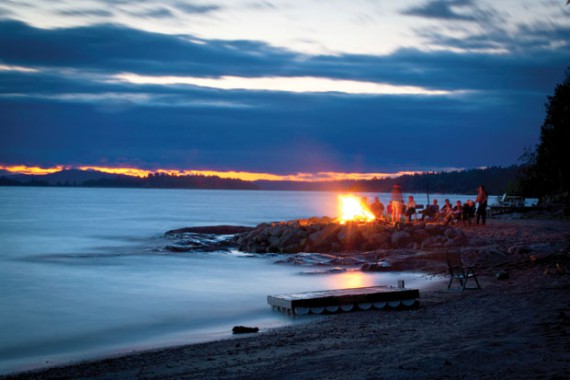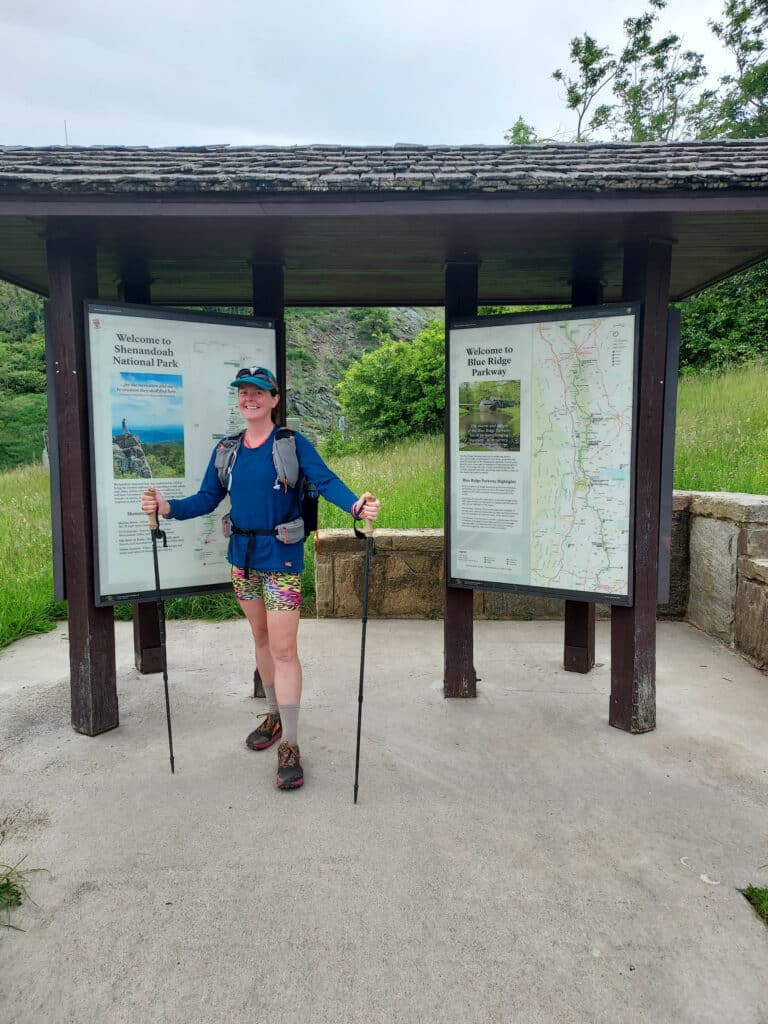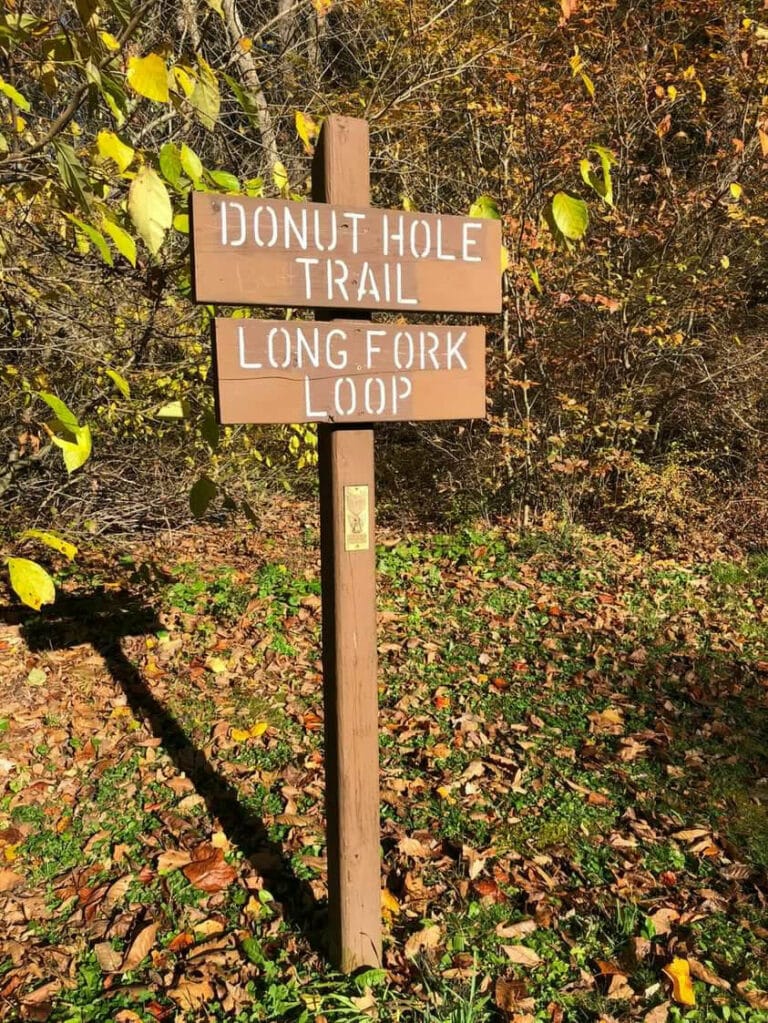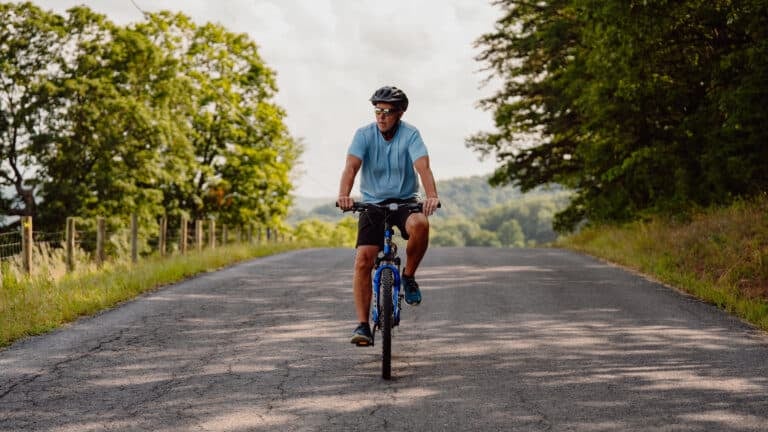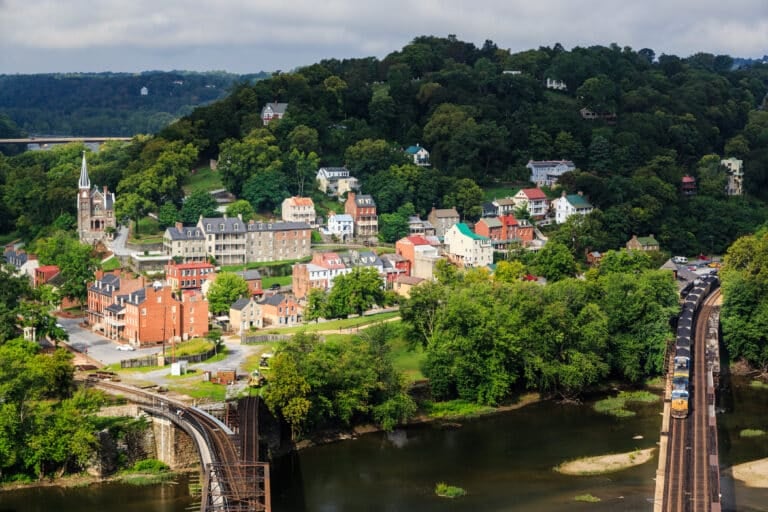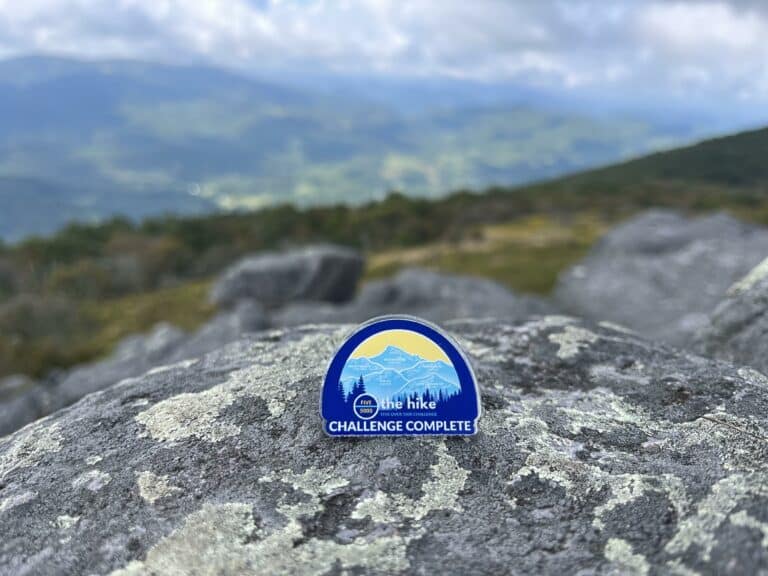We had just finished smearing the frog onto the jet-ski when we saw the flashlights. We took off like a shot back to our campsite.
It was the summer before our senior year of high school, and Graham and I were, as all sets of 16-year-old best friends are, complete jackasses. We headed up to Lake Moomaw in Graham’s parents’ minivan on one of those summer days when the sun just bakes the pavement and the cicadas whine well into the night. When we came to the last outpost of civilization–a bait shop on a ridge overlooking the lake–we stocked up on the essentials (Yahoo, Pringles, Snickers) and set out for the territory.
We got to our campsite late that afternoon and set up our tents. Immediately, we started searching for dead trees and felt like Paul G.D. Bunyan when we’d find one, bury our hatchets deep into, and topple it over. We amassed a few days’ worth of firewood that way and then set out on task number two. We had found the head of a miniature five-tined, barbed pitchfork in Graham’s garage before we left, and we took that as a challenge.
So we very illegally chopped down a living tree, a glorified sapling that had the bad luck of being just the right diameter to get lodged into the base of the pitchfork head. We had our mascot: the quindent, we called it. Lucille, affectionately.
When we got back to camp, I took off my watch and came to know the pleasure of not marking time by any schedule other than the sun’s. We spent our days chopping wood, cooking camp food, canoeing, and swimming in the cool, deep waters of the lake, which were unfortunately churned into a murky brown by a jet-ski that a neighboring camper mindlessly revved and spun around our swimming hole. We spent our nights looking at the Milky Way, which spilled out above us, and talking teenage philosophy (“If the universe is infinite, there must be, like, a perfect double of Earth orbiting some star out there, man”). It was one of those conversations (“You don’t deserve to eat meat if you can’t come to grips with the fact that something died so you could eat it”) that made us decide to use Lucille for something more than throwing into the ground and swinging at each other’s face.
We decided to go frog hunting. Complicating this was the fact that neither of us had ever hunted anything bigger than a centipede before, but when the sun went down, we went out on the prowl anyway. Lucille in hand, we set out for the shoreline, where we could hear frogs shouting at each other.
We got really quiet and then began listening for the closest frog. We stalked it like Rambo, if Rambo were a teenage idiot, and then finally: paydirt. The frog was just feet away, and Graham had Lucille primed for a champion throw. He flung the quindent straight at the frog, and with a sickening splat, he hit his mark. The croaking stopped immediately.
At least it didn’t suffer. Lucille cut it clean in two and helpfully skewered the back half onto one of her tines. One second it was out on the beach, sitting pretty as you please and ribbitting away; the next, its life was snuffed out. There was a metaphor in there somewhere, but I was too busy dodging Graham’s attempts to jab the frog legs into my face to contemplate it.
We started back toward the campsite when the reality of what we were about to do set in. The extent of my cooking knowledge at the time ended with mac and cheese and forgetting to put my mom’s premade lasagna in the oven in time for dinner. Graham’s microwave s’mores were OK, I guess. How the hell were we going to turn a pair of flaccid, slimy frog legs into anything remotely edible? Were we supposed to gut and clean this thing? I was always into catch-and-release when I’d go fishing; the closest I’d gotten to anything like this was when we dissected fetal pigs in ninth grade biology, and the only thing I remembered from that was Marcus Robinson pouring iced tea into his pig’s mouth when Mrs. Wellons wasn’t looking. Dammit, Marcus! Why did it have to make such a humorous gurgling sound, like the pig was brushing his teeth?! And anyway, aren’t some frogs poisonous? 
So we did the only logical thing: we marched it back to the shoreline, where the jet-ski was docked. Graham and I shared the honors, both gripping the now unwieldy quindent as we wiped the gore onto the seat of the jet-ski. That’s when the flashlights came on and we sprinted as noiselessly as we could back to camp.
We arrived and sat down, struggling to holding our breath, while the flashlights swung around the shore. After an endless five minutes, the flashlight beam wheeled back to our neighbor’s camp. The jet-ski stayed out of the cove for the rest of our time camping. Graham’s a vegan now.
The next day, we decided to swim out to an island that looked like it held a lush paradise, ripe for the taking. It was hard to tell just how far it was, but I was overly excited and could only think: “I could swim that.”
I joined the swim team when I was five years old. I was once the best damn breast-stroker in all of Lynchburg (not counting anyone over the age of eight). I could swim it.
I couldn’t, however, judge distances very well. Also, my skin looks indistinguishable from Edgar Winter’s when I spend more than a week out of the sun. After the first quarter mile or so, the “delightful” sensation of sunbeams penetrating the cool water and warming my back gave way to the punishing feeling of being cured alive.
When we finally got to the island after at least an hour of swimming, we were miserable. Our backs shone like lit charcoal, and when we washed up on shore, we found that we could barely stand. The island was comprised entirely of tiny, jagged rocks and impossibly dense underbrush. We staggered forward, trying to find shade and relieve our feet, which were quickly being shredded, when we noticed that the island was already populated. A moving blanket of thousands of spiders skittered around the shore. We had no choice but to turn right back around and make the increasingly fatiguing slog back to camp, our arms and legs aching almost as much as our backs stung with sunburn.
The burn peeled off in great, jerky-like strips a few days later, and I was still shaking sloughed-off bits of skin out of my sleeves when school started up in September. I was like a molting snake — a teenage snake that was too cool to put on sunscreen. I could’ve made a lampshade out of the reams of skin that rose and then peeled from my back. I felt like an onion, if an onion was raw and pink under the skin and screamed when you poked it. The point is: I was in a hurt.
But I wore the burn as a badge of honor. It was on that trip that I learned of the thick, eye-level cloud that settles over a lake overnight, waiting to be parted by a silent canoe. I learned how quickly you can adapt to living outside of the hours on a clock, and how much more alive you feel when you do so. My big summer programming project didn’t matter, nor did reading “The Joy Luck Club” for AP English or researching colleges or, indeed, anything beyond each passing moment.
That’s what the outdoor life does: clarifies, turns the incessant honking of everyday life into a dim murmur that can always be tuned out, no matter how insistent it might seem. That’s what I learned on that trip.
That, and the best technique for applying frog paté to a Ski-Doo. Hint: it’s all in the twist. •
